Understanding fractions Math Worksheets for Ages 3-4
8 filtered results
-
From - To
Discover the perfect resources for introducing fractions to young learners with our "Understanding Fractions Math Worksheets for Ages 3-4." These engaging worksheets are designed to help preschoolers and kindergarteners grasp basic fraction concepts through fun, hands-on activities. Each worksheet incorporates colorful visuals and simple exercises to make learning fractions an enjoyable experience. By breaking down complex ideas into easily understandable parts, our worksheets foster a strong foundation in math that will benefit children in their academic journey. Equip your child with the skills they need to confidently tackle fractions and build a love for learning math early on!
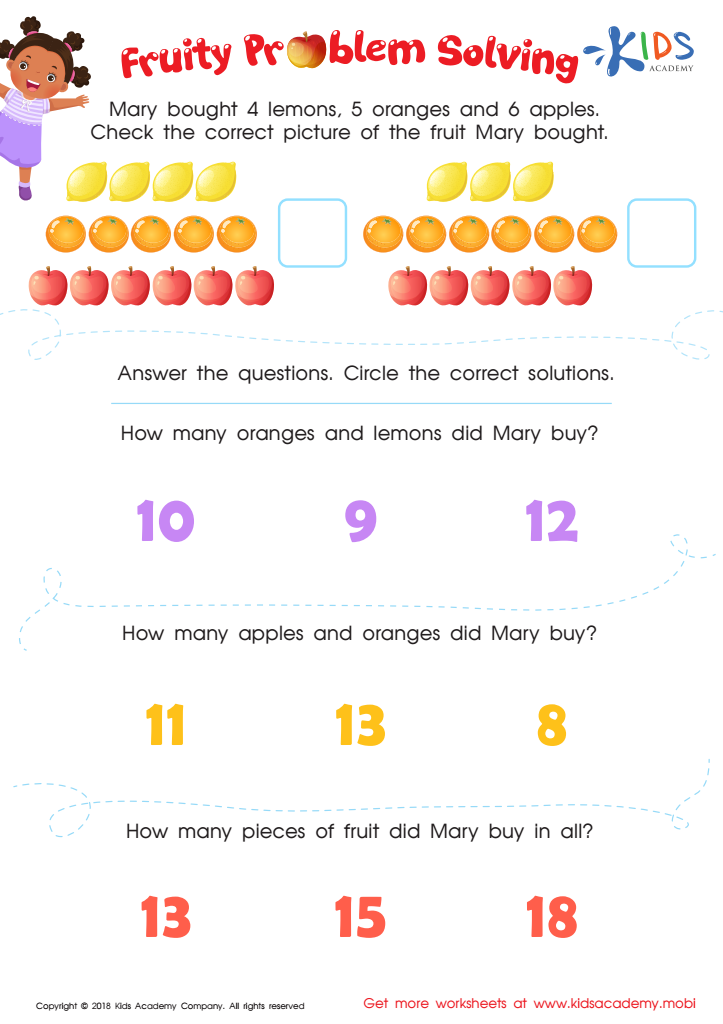

Fruity Problem Solving Worksheet
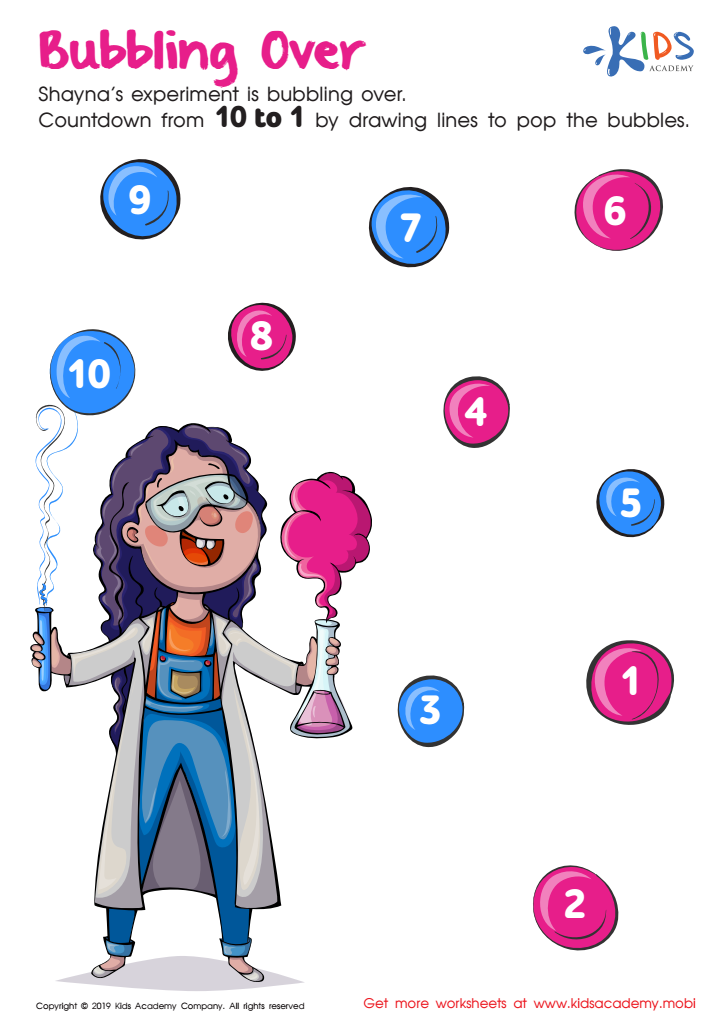

Bubbling Over Worksheet
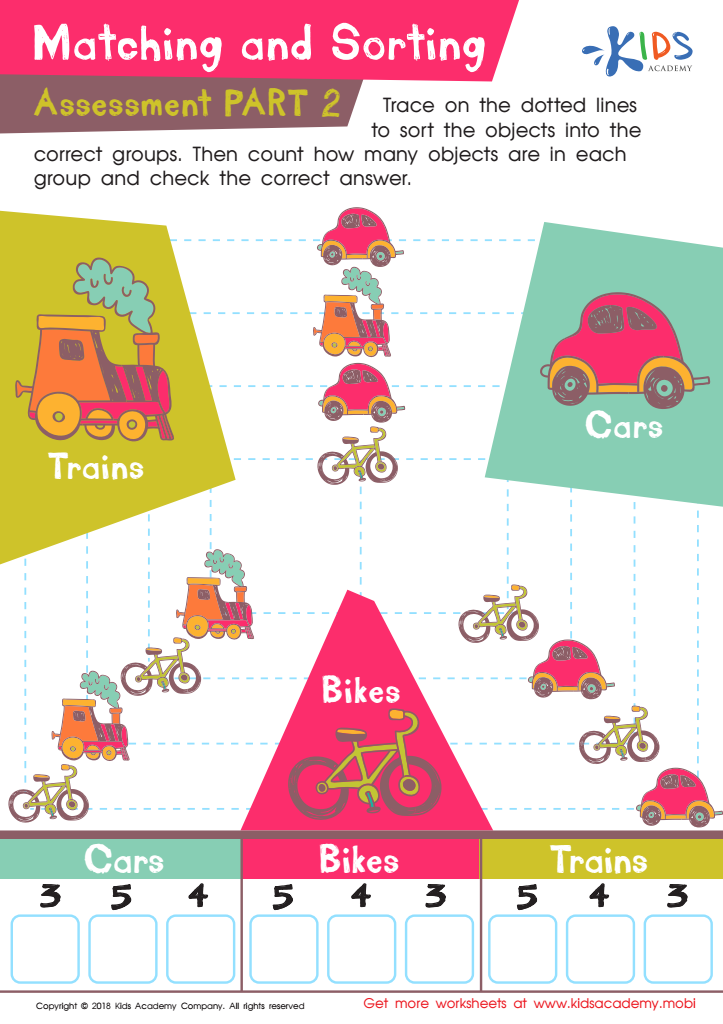

Matching and Sorting for Kindergarten: Assessment 2 Worksheet
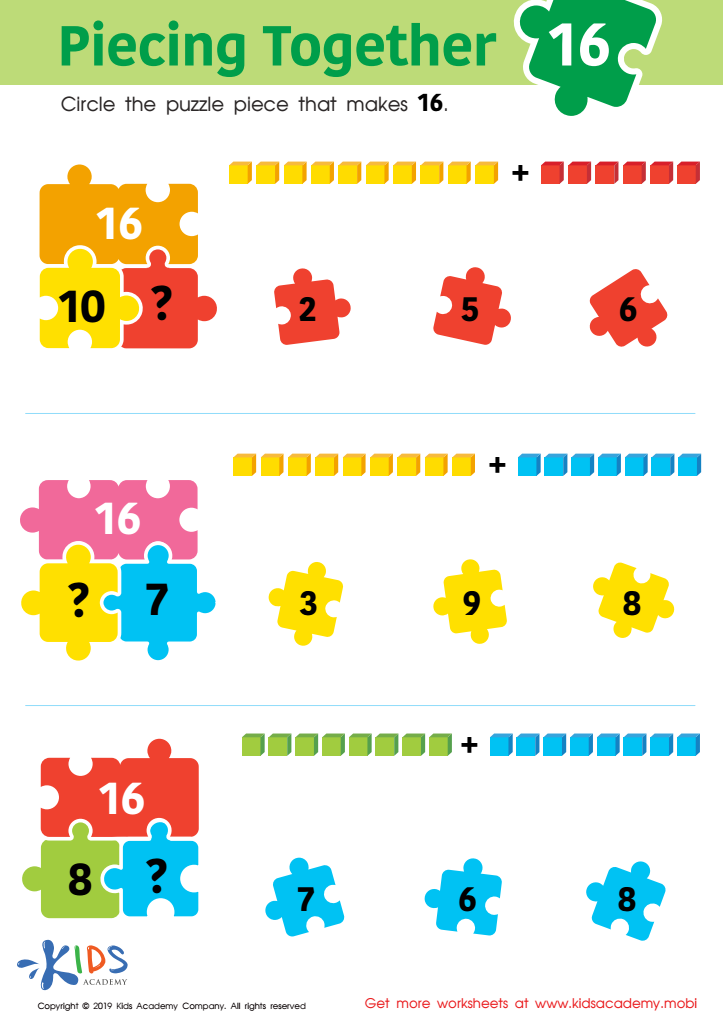

Piecing Together 16 Worksheet
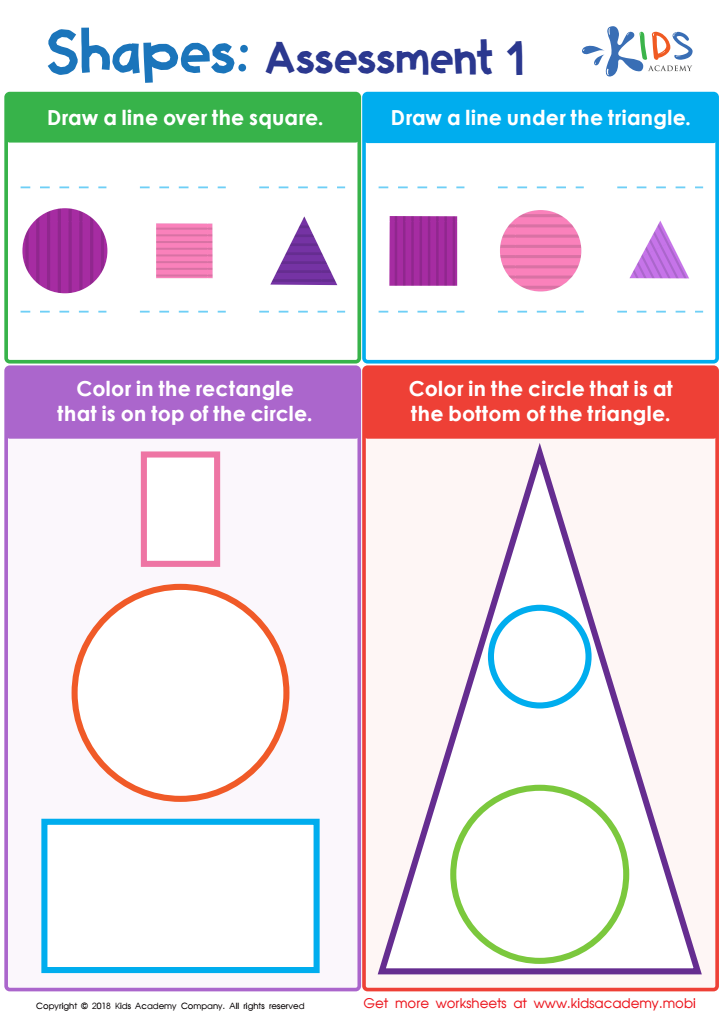

Shapes: Assessment 1 Worksheet
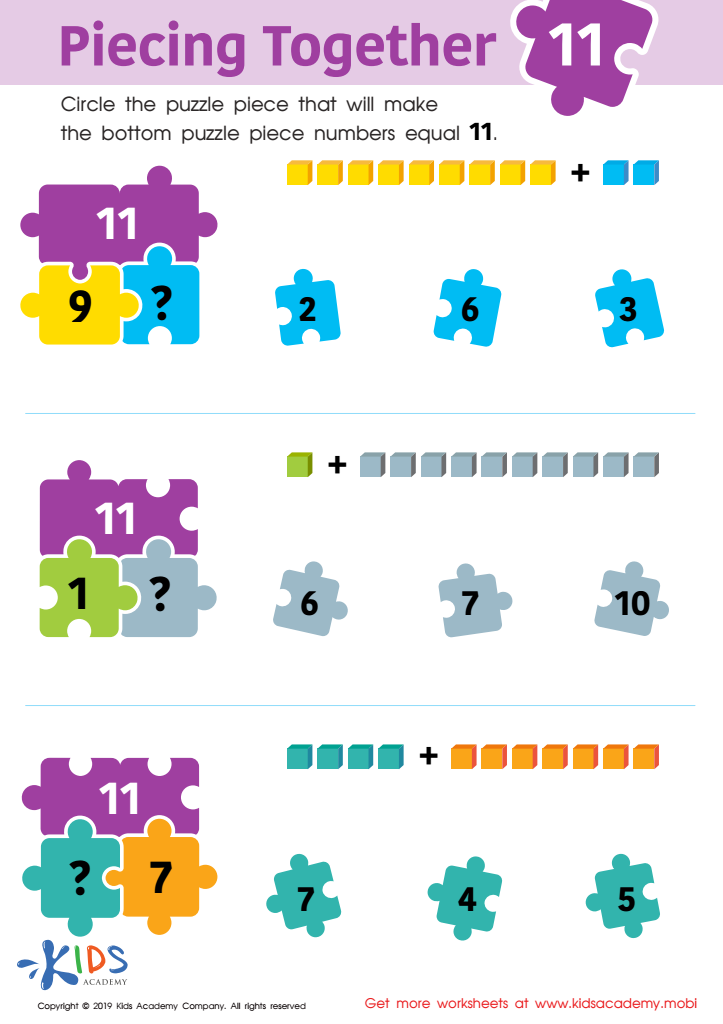

Piecing Together 11 Worksheet
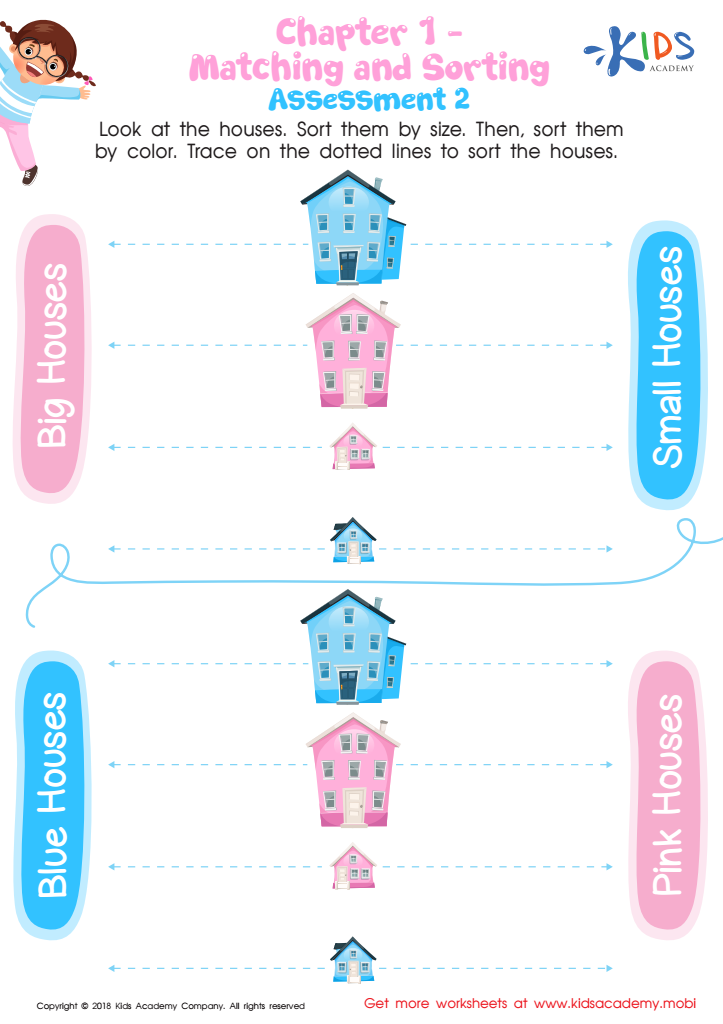

Matching and Sorting for Preschool: Assessment 2 Worksheet
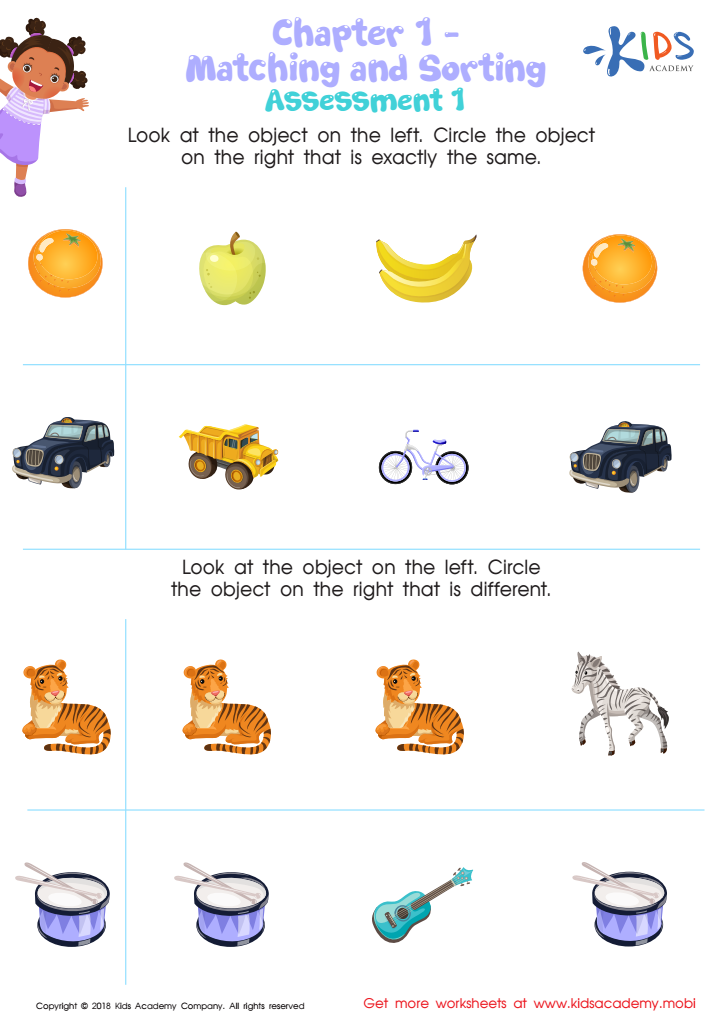

Matching and Sorting for Preschool: Assessment 1 Worksheet
Understanding fractions at an early age, even for children as young as 3-4 years, is important for several reasons. Firstly, introducing basic concepts of fractions helps build a strong mathematical foundation. Early familiarity with parts and wholes aids in the development of number sense, which is crucial for later, more complex mathematical learning. If children recognize that fractions represent parts of a whole, they can more easily grasp division, ratios, and proportions as they grow older.
Secondly, learning fractions encourages cognitive development. When young children work with fractions, they engage in problem-solving and logical thinking, improving their overall cognitive abilities. Activities like dividing playdough, sharing toys, or cutting fruit can make learning fractions hands-on and fun, reinforcing these skills through practical experience.
Additionally, understanding fractions has real-world applications. Recognizing halves, quarters, and thirds can help children better understand their daily environment, whether they are sharing snacks, measuring ingredients, or splitting time on different activities.
Parents and teachers play critical roles in this early education. By fostering an interest in fractions, adults can encourage a positive attitude toward math, reducing math anxiety later in life. Early intervention and support in learning fractions set the stage for academic success and life-long mathematical confidence.
 Assign to My Students
Assign to My Students








.jpg)











